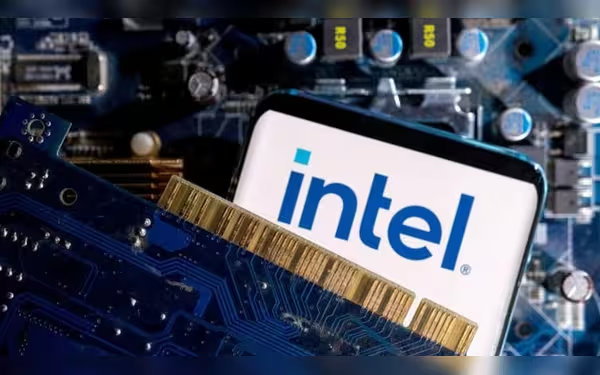Saturday, November 16, 2024 05:53 PM
Intel Secures $8.5 Billion Funding from US Government for Chip Manufacturing
- Intel and US nearing $8.5 billion funding agreement.
- Funding aims to enhance Intel's chip manufacturing capabilities.
- Potential Qualcomm acquisition may complicate negotiations.
 Image Credits: channelnewsasia
Image Credits: channelnewsasiaIntel and the US government are finalizing an $8.5 billion funding deal to enhance chip manufacturing capabilities amid competitive market challenges.
In a significant development for the semiconductor industry, Intel Corporation and the U.S. government are on the verge of finalizing a substantial funding agreement amounting to $8.5 billion. This funding is aimed at bolstering Intel's capabilities in chip manufacturing, a sector that has become increasingly vital in today’s technology-driven world. The Financial Times reported that discussions regarding this funding are at an advanced stage, with expectations that a deal could be reached before the end of the year.
The urgency of this funding stems from the competitive landscape of the semiconductor market, where Intel has faced challenges in maintaining its manufacturing edge. Once a leader in chip production, Intel has seen its position eroded by competitors such as Taiwan Semiconductor Manufacturing Company (TSMC). The company has struggled to keep pace with the rapid advancements in technology, particularly in the realm of generative artificial intelligence, where rivals like Nvidia and AMD have thrived.
In March, U.S. President Joe Biden recognized the importance of domestic semiconductor production by awarding Intel nearly $20 billion in grants and loans. This preliminary agreement included $8.5 billion in grants and up to $11 billion in loans, specifically designated for Intel's operations in Arizona. The funding is expected to facilitate the construction of two new factories and the modernization of an existing facility, thereby enhancing Intel's production capabilities.
However, the path to finalizing this funding is not without its hurdles. Reports indicate that any potential acquisition of Intel by Qualcomm could complicate the ongoing discussions. While Qualcomm has expressed interest in exploring a takeover of Intel, such a move could disrupt the delicate negotiations currently underway.
As the semiconductor industry continues to evolve, the outcome of these discussions will be closely watched. The successful finalization of the $8.5 billion funding could not only revitalize Intel's manufacturing capabilities but also play a crucial role in strengthening the U.S. position in the global semiconductor market. In a world increasingly reliant on technology, the stakes are high, and the implications of these developments will resonate far beyond the boardrooms of Intel and the U.S. government.
The potential agreement between Intel and the U.S. government represents a pivotal moment for the semiconductor industry. As Intel seeks to reclaim its status as a leader in chip manufacturing, the support from the government could provide the necessary resources to innovate and compete effectively. For consumers and businesses alike, the outcome of this funding agreement could lead to advancements in technology that enhance everyday life, making it a situation worth monitoring closely.













